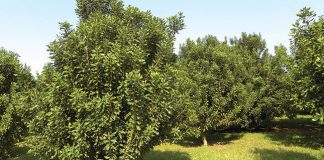The deal would also eventually see the phasing out of export subsidies for EU products heading to SA and four other Southern African countries that are, so far, part of the agreement.
A statement by the European Commission said Botswana, Lesotho, Namibia, Swaziland, and SA, had ratified the Southern African Development Community – EU Economic Partnership Agreement (SADC-EU EPA).
“The EPA takes into account the different levels of development of the partners. It gives Botswana, Lesotho, Mozambique, Namibia, and Swaziland duty-free, quota-free access to the European market. South Africa will also benefit from enhanced market access, going beyond its existing bilateral arrangement with the EU,” the European Commission said.
Sidwell Medupe, spokesperson for SA’s Department of Trade and Industry (DTI), said the SADC-EU EPA would give SA preferential access for about 99% of the products exported to the EU, of which 96% would be not be subject to customs duties or quantitative restrictions.
SA gains improved EU access for wine, sugar, ethanol, flowers, some dairy products, fresh fruit, canned fruit, fruit juice, and yeast, and also has duty-free access for 150 000t of sugar, while the existing wine quota will increase from 50 million litres to 110 million litres with flexibility on size of the containers.
A total of 80 000t of ethanol will also have duty-free access to this market, Medupe explained. In addition, he added that the SADC-EU EPA will improve the protection of geographical origin for products such as Rooibos, Honeybush, and Karoo Lamb.
“The so-called cumulation of origin will, for example, make it possible to apply discount tariffs on the EU border for fruit harvested in one country of the [SADC] region and [has] then [been] preserved and canned in another,” the European Commission said.
The preferential access which the EU currently has to the SA market will be extended to include agricultural products such as wheat, barley, cheese and pork.












